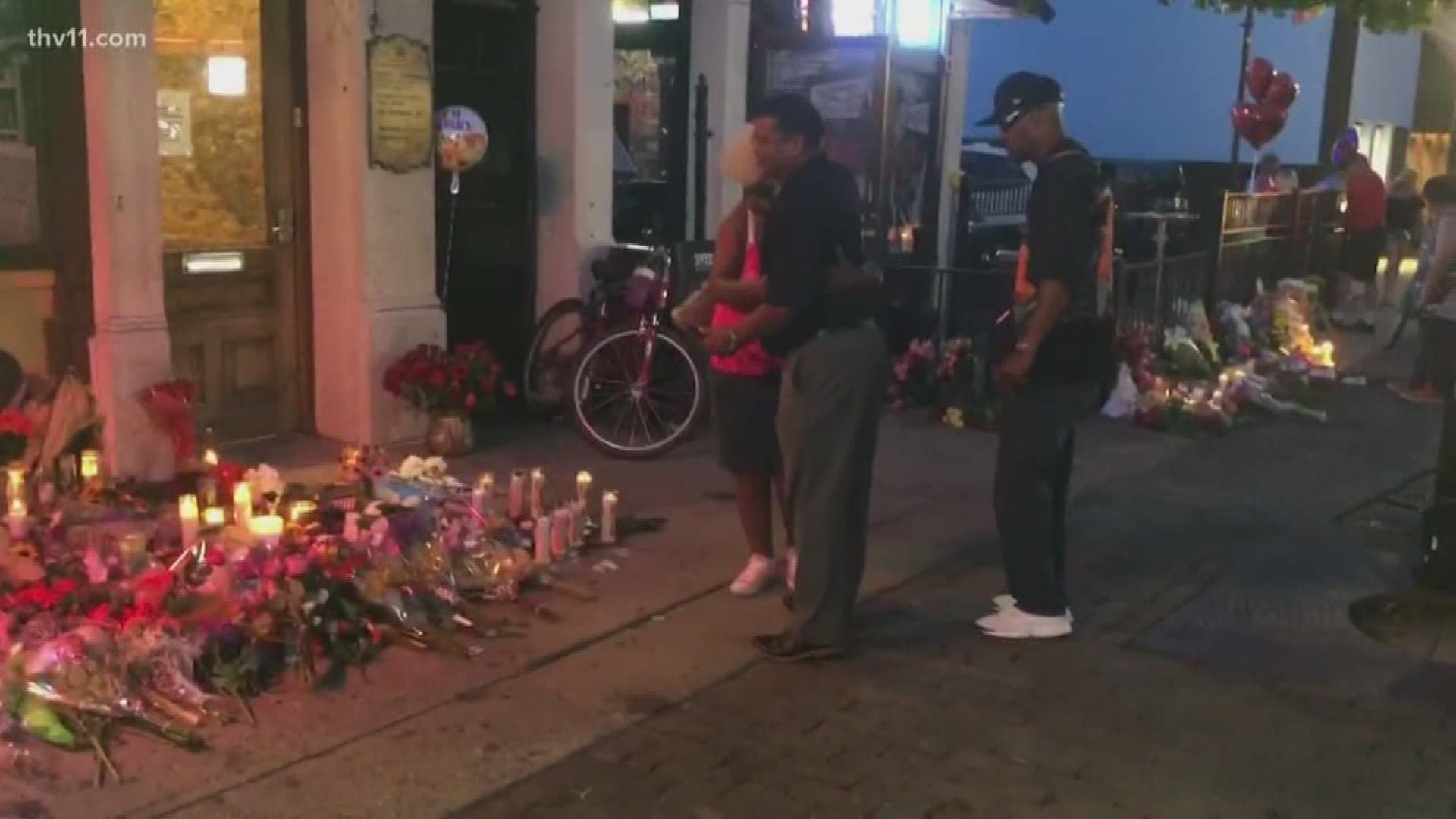LITTLE ROCK, Ark. — Mental Health care is a common topic of discussion in the aftermath of a tragedy like the mass murders in El Paso, Texas and Dayton, Ohio. But should it be?
“I think anything that will get people to thinking about taking care of their mental health is great,” Michelle Coleman said Monday afternoon. “Anything that will get conversations started around mental health awareness and treatment is helpful.”
Coleman, a licensed professional counselor with Behavioral Health Services of Arkansas, said a fear of being shamed prevents lots of people from addressing or talking about mental illness. “People view people with mental illnesses as incapable, and no one wants to feel like they’re not capable,” she said.
Mental health care, along with gun control and public safety, is one of the topics commonly discussed by politicians following mass shootings. Sen. John Cornyn (R-Texas) said people who commit those atrocities are, “obviously people who are twisted by mental illness.”
Speaking from the White House Monday morning, President Donald Trump said, "we must reform our mental health laws to better identify mentally disturbed individuals who may commit acts of violence and make sure those people not only get treatment, but when necessary, involuntary confinement. Mental illness and hatred pulls the trigger, not the gun."
Thus far, no evidence exists to show that the suspects in the shootings in El Paso or Dayton had a diagnosable mental illness. A study from Columbia University of 235 mass murders dating back more than a century found that roughly 22% of the killers had a link to mental illness. According to the National Alliance on Mental Illness, that is approximately the same as the percentage of American adults who experience mental illness in a given year.
“I would like people to know that having a diagnosable mental health illness does not predispose you to violence,” Coleman stated.
So, while people might be talking about the wrong thing, Coleman is not alone among mental health care professionals in believing that the fact that talking about it at all makes up for it.
“I think, any time that we can start a conversation about mental health is a good time to start it,” said Jamie Stacks, a licensed professional counselor at Conway Counseling and Wellness. “Ideally, you would want it to happen before tragedies occur, but if tragedies occur and that will bring awareness to people getting help, themselves, or helping a loved one get help, then that’s an appropriate time to talk about it, too.”
“It really gives us an opportunity to be able to expand services and to make people more aware of what we can provide and what we can do,” added Dr. Ayisha Canant, owner of Conway Counseling and Wellness.
The National Alliance on Mental Illness reports that 66 million American adults have a mental illness, but only 40 percent of them seek treatment. Stigma is one reason people choose not to receive treatment. Canant believes the cost is another. “We know,” she said, “that a lot of people who have mental health concerns are not insured, still. And if they are insured with private insurance, there’s still going to be subject to high deductibles, high co-pays.”
To end or reduce the stigma surrounding mental health care, Coleman suggested that people open up about their own experiences as a way to put others at ease. “Say that, you know, I’ve seen a therapist before, or I’ve seen a psychiatrist before.”
“We have all sorts of medical illnesses that people don’t mind seeking help for,” Stacks added. “I want it to be the same and normalized with mental health, as well. The biggest thing, again, is just the conversation.”
Canant said there is not a direct correlation between mental illness and homicidal or suicidal behavior, nor it is easy to predict who will display those tendencies.
“We know that there are risk factors,” she explained. “We know that when someone is going through a significant life change, we know that if there’s substance abuse involved, that’s a dramatic change in the risk factors that can happen from there. But we do know that, generally, if people are experiencing mental health, some mental health symptoms—depression or anxiety, or something along those lines—typically, people are more at risk to be of harm to themselves than they are to other people. But every case is different. You never can really predict what someone’s going to do.”
“Most people, at some point in their life, experience depression or anxiety, or some of these things,” Stacks added. “I think that their life circumstances at the time, I think their support systems, I think, whether or not they use or abuse substances can all play a factor in: does it stay here at a fairly—what most people would consider—treatable way, that’s not a danger to society or to themselves?”
Canant, Coleman, and Stacks all mentioned some variation of, “if you see something, say something” as a way to safely, quickly address concerns about mental health. They urged anyone who feels different than they had in the past, or notices changes in someone else’s behavior or attitude, to consider calling a mental health care provider.
“You’re gonna get mad, you’re gonna get depressed, you’re gonna get anxious. Like, these things happen, and it’s okay,’” Stacks said. “And, even normalizing some of the more psychotic symptoms that people have. People have mental illnesses and that’s okay. It doesn’t mean that they’re a danger. It doesn’t mean that they’re out to get you. It simply means that things happen.
“We have all sorts of medical illnesses that people don’t mind seeking help for. I want it to be the same and normalized with mental health, as well. The biggest thing, again, is just the conversation.”

